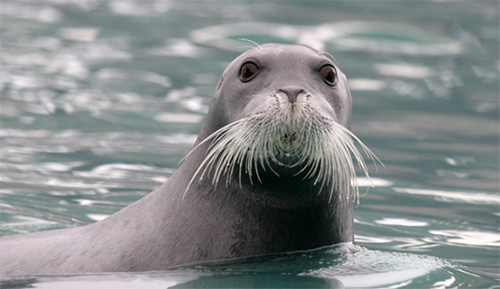
Bearded Seal Listing Poses Significant Implications for Native Communities Throughout Alaska
July 26, 2017
Joining Arctic Slope Regional Corporation (ASRC) in the petition are the State of Alaska, the North Slope Borough, the Northwest Arctic Borough, the Inupiat Community of the Arctic Slope and NANA Regional Corporation.
“A listing of a bountiful and healthy species solely upon uncertain speculation 100-years into the future is not scientific and would greatly impact our entire state,” said Alaska Attorney General Jahna Lindemuth. “I hope the U.S. Supreme Court will take up this case and require that these decisions are supported by reasonable scientific evidence, not speculation.” "This is yet another example of federal overreach threatening the quality of life and economic viability of Alaska Native communities," said Rex A. Rock Sr., ASRC president and CEO. "The Ninth Circuit's decision will have detrimental effects on growth and sustainability in our region, at a time when the state's economy is already on unstable ground." Rock continued, "By accepting uncertain 100-year climate projections as the basis for a threatened listing, the appellate court has undermined the statutory requirement that threats to a species be foreseeable. The Ninth Circuit's permissive standard for the listing of species not only creates unnecessary regulatory burdens on the North Slope, but sets the stage for additional species to be considered for ESA listing throughout the entire state." "If the ESA listing for bearded seals were to stand, it would require us to recover a population that has not yet declined," said Bruce Dale, Director of the Division of Wildlife Conservation and the Alaska Department of Fish and Game. "That is simply not possible and a poor use of resources." "We are deeply concerned by this decision, just as we were five years ago," said North Slope Borough Mayor Harry K. Brower, Jr. "We want to work together with industry and government agencies to protect the subsistence rights of our people, protect the environment, and develop all the resources of the North Slope in a responsible manner. We support this court petition, but we are always ready to meet and discuss a way forward." In 2013, Alaska Native entities, the State of Alaska, and the oil and gas industry filed lawsuits challenging the NMFS listing decision. The Alaska District Court vacated the bearded seal listing in the summer of 2014, concluding that "forecasting more than 50 years into the future is simply too speculative and remote." NMFS appealed the ruling. The U.S. District Court initially found the Beringia distinct population segment of bearded seals should not have been listed as threatened because the seal population is presently healthy and does not face an immediate threat. The district court determined that the National Marine Fisheries Service should not have listed the species based solely upon speculation that the seals would be impacted by sea-ice habitat loss due to climate change by the end of the 21st century. NMFS needed to better explain and provide support for any potential impacts to the species, a species now robust in number and health. In October 2016, the Ninth Circuit disagreed with the district court, reinstating the listing reversing a 2014 lower court decision that rejected the listing as speculative, but Ninth Circuit judges said the listing is supported by sound science predicting steady loss of the Arctic sea ice bearded seals need to survive. The Iñupiat Community of the Arctic Slope, Northwest Arctic Borough, North Slope Borough, Arctic Slope Regional Corporation, NANA Regional Corporation, Inc., and the State have now joined together to ask the U.S. Supreme Court to review the case.
Reporting and Editing by Mary Kauffman, SitNews
Source of News:
Representations of fact and opinions in comments posted are solely those of the individual posters and do not represent the opinions of Sitnews.
|
|||
